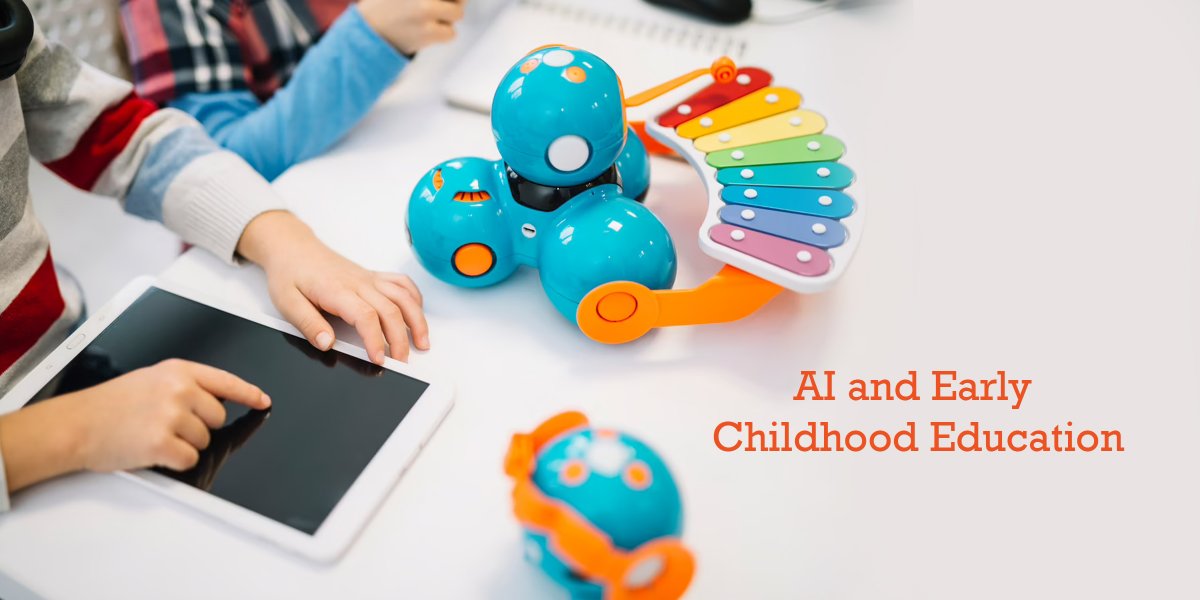In today’s rapidly advancing world, technology has become an integral part of our lives, transforming various sectors including education. Among the latest technological advancements, Artificial Intelligence (AI) has emerged as a powerful tool with immense potential. AI and early childhood education share a close and evolving connection, though many are unaware of it. AI enables machines to learn like humans and is increasingly applied across various industries. Surprisingly, AI is now benefiting early childhood education, which may seem unusual at first. However, the shortage of teachers has prompted the integration of artificial intelligence in the classroom. Thankfully, it seems that AI is actually providing children with an advantageous beginning in life.
The integration of artificial intelligence in the classroom
- Integrating artificial intelligence into the classroom necessitates careful preparation and coordination among educators, administrators, and technology specialists.
- To ensure that AI power complements and enriches the learning experience rather than replacing it, it is crucial to find a balance between technology and human engagement.
- It is vital to train instructors to use AI tools successfully.
- Educators should be provided with professional development chances to become acquainted with AI applications and learn how to effortlessly integrate them into their teaching techniques.
- Teachers may acquire important insights into their students’ development, detect learning gaps, and give specific support by embracing AI.
Understanding AI in early childhood education
- Early childhood education plays a crucial role in a child’s overall development.
- It encompasses the formative years from birth to the age of eight, focusing on the cognitive, emotional, social, and physical growth of young learners.
- AI power to process vast amounts of data and perform complex tasks, has the potential to enhance the early childhood education which is a crucial developmental stage.
- Children possess abundant energy that can be harnessed productively by guiding them towards positive pursuits.
- One effective approach is to introduce them to new concepts and ideas that will facilitate their personal growth, while ensuring an engaging and enjoyable learning experience.
- A captivating realm for children to explore is the fascinating world of AI, where limitless possibilities await, such as the marvel of autonomous cars.
AI power in early childhood education
- Artificial Intelligence has the power to transform early childhood education by amplifying its effectiveness.
- Artificial intelligence algorithms can analyze vast amounts of data to identify patterns, making it possible to personalize education to a degree that was previously unimaginable.
- By tailoring learning experiences based on a child’s strengths, weaknesses, and individual learning style, AI ensures that each child receives the support they need to thrive.
- Additionally, AI-powered systems can free up educators’ time by automating administrative tasks like grading and assessment.
- This enables teachers to focus more on fostering meaningful connections with their students and providing personalized support and guidance.
AI in early childhood education boosts holistic development
- Learning robotics, programming, and AI can be challenging for kids due to the vast creative possibilities and complex concepts involved.
- However, the enjoyment and experimentation involved in these subjects keep children engaged.
- Educators must recognize the effective AI in early childhood education.
- By persisting in these subjects, children not only enhance their intellectual abilities but also develop important life skills such as patience, persistence, and problem-solving through unconventional methods.
- Collaborative AI projects instill values of teamwork and emphasize the importance of hard work for achieving success.
Examples of AI in early childhood education
AI offers a range of innovative solutions in early childhood education.
Adaptive learning platforms
AI-powered adaptive learning platforms can assess a child’s abilities and tailor educational content and activities to their specific needs. These platforms can provide personalized recommendations and track progress, allowing educators and parents to identify areas that need more attention.
Intelligent content development
AI may be used to create instructional content that is tailored to the individual requirements and interests of young learners, such as interactive tales or quizzes. This content development process may be automated, giving instructors access to a variety of information.
Augmented Reality (AR) and Virtual Reality (AR)
AR and VR technologies can create immersive and interactive learning experiences for young children. For example, virtual reality simulations can allow children to explore places of historic importance or engage in scientific experiments, while augmented reality can overlay digital content onto the physical world, enhancing storytelling or visualizing abstract concepts.
Advantages of AI in early childhood education
AI in early childhood education offers various benefits that can enhance learning experiences for young children. Here are some of the advantages.
- AI in early childhood education enables personalized learning experiences tailored to each child’s unique needs, abilities, and learning style.
- AI tools can analyze vast amounts of data and identify early signs of learning difficulties or developmental delays.
- AI can bridge the gap in access to quality education by providing learning opportunities to children in remote areas or with limited resources.
- AI can facilitate collaborative learning experiences by connecting children with peers from different backgrounds and cultures.
- AI tools assist educators in automating administrative tasks, providing them with more time and resources for building meaningful relationships with students.
As AI continues to advance, its potential to transform early childhood education is undeniable. By leveraging the power of AI, educators can create personalized learning experiences, cater to individual needs, and foster the development of essential skills in young learners. By embracing the possibilities that AI offers, we can shape a bright future for early childhood education, empowering our children with the skills they need to succeed in an ever-evolving world. AI in early childhood education should not replace human interaction and guidance. Teachers and caregivers play a crucial role in supporting children’s holistic development and social-emotional learning. AI should be seen as a tool to enhance the learning experience and complement human instruction.

